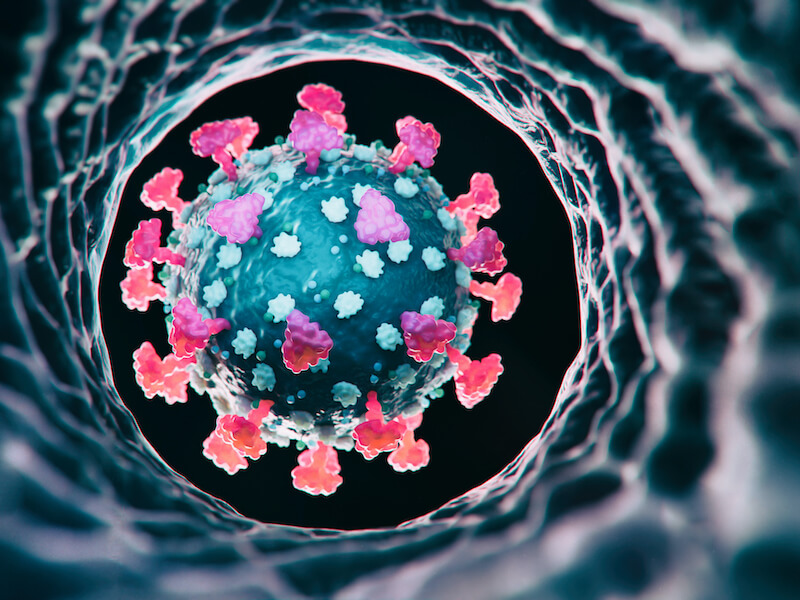
If you’re exposed to a lot of loud sound and don’t wear ear protection, you may experience hearing loss later in life. Similarly, if you work on a noisy factory floor and don’t wear ear protection, hearing loss might be in your future. These are fairly common and well recognized causes of hearing loss. But within the past few years, a new cause has entered the fray. Yup, you guessed it, Covid-19.
That’s correct, the same disease that’s been turning the world upside down for the past couple of years might also lead to hearing loss.
Maybe? Probably? Okay, Covid-19 is still a very new virus. And scientists are learning something new about it every day. There is some research which indicates that hearing loss could be a potential side effect of Covid-19, but more research still needs to be done to back this up. So let’s have a look at where things stand right now.
Does the Covid vaccine produce hearing loss?
So here’s the first thing to remember: There’s utterly no proof that the Covid-19 vaccine leads to hearing loss. That’s true for all of the currently approved and available vaccines, from Pfizer and Moderna to Novovax. That just isn’t how these vaccines work, they don’t impact your ears at all. It would be like blaming your diabetes on the salad you ate for lunch.
This goes for the brand new mRNA vaccines and the more established ones. For the majority of individuals, the risks are vastly exceeded by the advantages. If you have questions about vaccines, make sure to talk to your doctor, and get answers from a reputable source.
Let’s discuss hearing loss now that we’ve cleared that up.
So, how can Covid cause hearing loss?
So how is hearing loss caused by this? Particularly, how does this lead to sensorineural hearing loss, the type of hearing loss that results from damage to your auditory system and is generally irreversible?
Scientists have a couple of hypotheses. These theories, we should mention, aren’t always mutually exclusive. They can both be true!
Theory #1: inflammation
The first substantial theory among researchers is that Covid-19 causes considerable inflammation in the upper respiratory tract, and that this inflammation can ultimately affect your ears. Your ears, nose, and mouth are all connected, after all. There are two ways this could trigger hearing loss:
- Fluid buildup: Inflammation can make drainage pathways smaller, making it more difficult for fluid to escape or drain properly. It becomes harder and harder to hear as this fluid continues to accumulate. In these cases, your hearing will typically go back to normal after your symptoms clear up (if this takes place, you’re not experiencing sensorineural hearing loss).
- Damaged cells: Keep in mind that viruses use your body’s own cells to reproduce. This can cause damage. Sometimes, damage to the vascular links between your brain and your ears happens because of the way Covid impacts your vascular system. This would be considered sensorineural hearing loss, and would likely be effectively permanent.
When hearing loss is caused by a buildup due to inflammation, steroids can sometimes be helpful. Researchers are still looking for a way to prevent sensorineural hearing loss due to cell damage. It’s unknown, based on this research, exactly how much protection vaccines give you against this kind of damage, but it seems obvious that it’s better than no protection.
Theory #2: Long Covid
The next hypothesis is more substantial when it comes to patients’ experience, but a bit less comprehended in terms of cause and effect. At this point, you’ve probably heard about something called Long Covid.
Long Covid is a condition in which people experience symptoms from Covid well after the actual virus has left their system. Often, a debilitating bout of long Covid that drags out for months, or longer, after having Covid itself, is experienced. Scientists still aren’t sure exactly what causes Long Covid, but there’s no denying it’s a real thing.
Data about long-term hearing problems was systematically reviewed by scientists and a report was published in February 2021. Here’s what the review found:
- Tinnitus was reported by 14.8%
- After getting Covid, hearing loss was reported by 7.6% of individuals.
- Vertigo was reported by7.2% of people
Whether these auditory difficulties are caused by Long Covid or just in relation to it isn’t very clear, but it’s safe to say there’s some kind of relationship. A host of symptoms, including hearing issues, come from Long Covid.
Evidence or anecdote?
When somebody talks about how they got Covid and haven’t been able to hear the same since, that’s an anecdote. It’s only one person’s narrative. And while it’s a fact of life for them, it isn’t really enough for researchers to go on when formulating treatment guidance. That’s why research is so critical.
As researchers uncover more evidence that these hearing complications are relatively prevalent, they’re able to create a clearer image of the risks associated with Covid-19.
Obviously, there’s still more to learn. The link between Covid and hearing loss isn’t either proven or unproven at this point and research is continuing. It’s essential to get help as soon as possible regardless of how your hearing loss developed. So if you think your hearing isn’t what it once was, contact us to make an appointment.
References
https://www.frontiersin.org/articles/10.3389/fneur.2022.883749/full
https://www.tandfonline.com/doi/abs/10.1080/14992027.2021.1896793?journalCode=iija20&